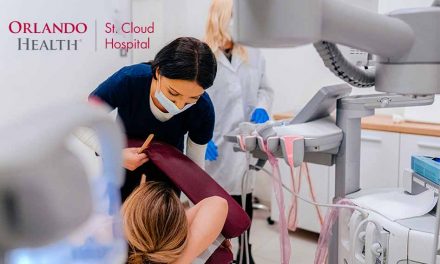
There are no guarantees that you won’t develop cancer. Many factors – including your genetics and family history – are outside your control. But that doesn’t mean you can’t improve your chances of avoiding some of the more common cancers.
When it comes to determining exactly what causes various cancer tumors to form, there’s still a lot we don’t know. But research increasingly points to a range of factors, including diet and lifestyle choices, that make our bodies more vulnerable.
Let’s take a closer look at five of the most common cancers and what you can do to lower your risk – or at least improve your chances of a positive outcome if you are diagnosed.
Skin Cancer
Skin cancer is the most common cancer in the U.S. It usually results from spending too much time in ultraviolet light – either from the sun or artificial tanning lamps. It may not be as prevalent as it once was, but there are still many people chasing tans.
Unfortunately, there’s no such thing as a healthy tan. That change in skin color is part of your body’s reaction to having its skin damaged. Those damaged cells have to be replaced by new cells. And every time your body makes new cells, there is a chance for an error that could lead to cancer.
That doesn’t mean you have to avoid the sun completely. But you can reduce your skin cancer risk by wearing broad-spectrum sunscreen (at least SPF 30), donning protective clothes and avoiding tanning beds. And keep an eye on your body for signs of new skin growths or changes in existing moles, birth marks, freckles or bumps.
Breast Cancer
Many of the breast cancer risk factors (being a woman, genetics and age, for example) are beyond your control. But research shows that you can reduce your risk by keeping your weight under control, exercising and avoiding smoking and alcohol.
And you must have regular screenings, which can catch breast cancer early, while it is easier to treat. Women of average risk should begin annual mammograms starting at the age of 45. Women at higher risk (having the BRCA gene, for example) should begin screenings earlier. Check with your doctor on when is the right time for you to start.
Prostate Cancer
There’s no one way to prevent prostate cancer. But maintaining good health and reversing any existing health problems can help. This means focusing on diet and lifestyle.
Among the strategies:
- Eat less fat. Look for healthier fats from olive oil, nuts, seeds and fish.
- Eat more fruit and vegetables. Try leafy greens, broccoli, cauliflower and tomatoes.
- Skip the charred meat. Frying or grilling meat at high temperatures can a produce a chemical compound linked to cancer.
- Regular exercise. This can help lower weight and reduce inflammation.
- Lose weight. Obesity can be a risk factor for prostate and other cancers.
- Increase your vitamin D. Wild salmon, cod liver oil and dried shitake mushrooms are good natural sources.
Lung Cancer
Lung cancer is the deadliest cancer in the U.S., accounting for one in every five cancer deaths. That’s more than colon, breast and prostate cancers combined.
The biggest risk factor, by far, is tobacco smoking. Other risk factors include second-hand smoke, exposure to certain chemicals and asbestos. The easiest way to reduce your lung cancer risk is to stop smoking, including cigarettes, cigars and pipes.
If you are a current or former smoker, one of the most important things you can do is get regular screenings for lung cancer. Your chances of a successful cure are significantly improved if it is caught early before it has a chance to spread.
Guidelines from the U.S. Preventive Services Task Force call for annual lung cancer screening (using CT scans) for people who meet all of these criteria:
- Between the age of 50 and 80.
- Have a 20 pack-year smoking history (A pack-year is calculated by multiplying the number of packs of cigarettes smoked a day by the number of years you have smoked.)
- Current smoker or quit within the past 15 years.
Colorectal Cancer
Colon cancer is one of the rare cancers whose incidence has risen in recent years, despite our society’s general success at fighting cancer. Strikingly, the incidence of colon cancer in people under age 55 has doubled over the past two decades.
We don’t know for certain what is causing this increase. But researchers think rising obesity rates and diets high in processed foods are a part of the problem. Getting more exercise and losing weight may be effective ways to lower your risk.
When it comes to diet, focus on vegetables, fruits, whole grains and lean meat. Some studies have found links between colon cancer and red meat (including pork and lamb) and processed foods like hot dogs and lunch meat.
Regular colon cancer screenings are also critical to catching polyps before they can become cancerous or while they are at a more treatable stage. The U.S. Preventive Services Task Force recommends that adults with average risk be screened starting at age 45. Talk with your doctor about which screening method is best for you.
Source: Orlando Health, www.orlandohealth.com


















